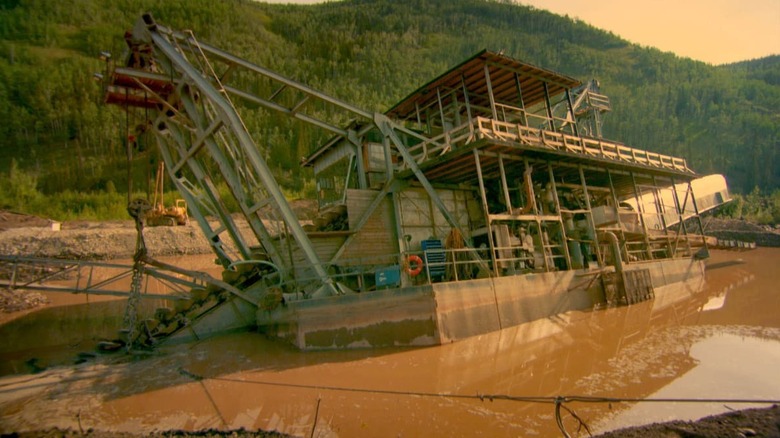How Gold Rush Damages The Environment
The "Gold Rush" franchise capitalizes on the entrepreneurial spirit and the yearn to strike it big. Mirroring the famous gold rushes of the 19th century, "Gold Rush" and its subsidiaries see fortune hunters traveling to remote locations in the hopes of finding a bounty of gold. Gold has always been a precious mineral to humanity, and as shows like "Gold Rush" prove, the demand has not abated. In fact, the price of gold has hovered around $1800 per ounce recently, which is about a 500% increase over the last 19 years (via Goldprice.org).
Season 12 of the popular Discovery television show started in September 2021, and the crew has been as hungry as ever. When one has the equipment, a camera crew, and the means and assets to travel, it could be considered silly not to try one's hand at gold mining. However, is the relentless pursuit (and the actions that follow) responsible for long-lasting destruction?
In general, gold mining isn't environmentally friendly
According to Earthworks.org, gold mining takes a tremendous toll on the environment by contaminating water supplies with chemicals like arsenic and lead, polluting habitats, and killing off wildlife. The organization even alleges that a single gold wedding ring creates around 20 tons of waste. Beyond the simple considerations of gold mining, the crew of "Gold Rush" themselves have been implicated in issues surrounding the show's alleged carelessness.
In 2017, some residents of a Colorado town sued their local board of county commissioners for allowing "Gold Rush" to film in the area, according to The Denver Post. They claimed that the crew had destroyed the natural habitat of a nearby hill and were disrupting the otherwise peaceful community by running their industrial equipment all hours of the day. A 2011 article about the show in The Oregonian also details several alleged environmental issues, including a moment when the crew drove industrial equipment through a possible salmon habitat and another where they killed a black bear.
"Gold Rush" certainly shows no signs of slowing down, but there is always an unseen cost to be considered when it comes to the exploitation of resources.

